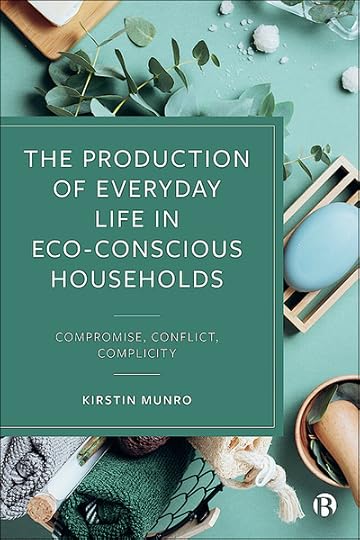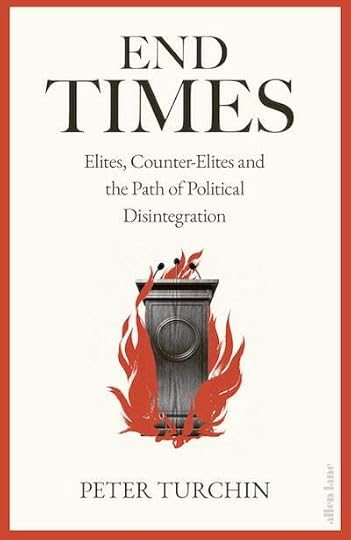Jeremy Williams's Blog, page 38
July 22, 2023
What we learned this week
You may have noticed the rash of anti-electric car scare stories in the newspapers in the UK recently. It might be organised, it might just be the papers angling for a viral hit. Either way, it’s undermining the transition to cleaner transport and puts the 2035 end-date for new petrol and diesel cars at risk. The Fully Charged Show and Fair Charge are crowdfunding a fact-checking campaign to counter negative stories if you’d like to contribute.
One of those scare stories is about how the inc...
July 20, 2023
The layered risk of climate change
When I first started looking into climate change some twenty years ago, there were a few things I didn’t understand. I didn’t see how an average temperature increase of 1.5 or 2 degrees Celsius was so dangerous. Sea level rise was also puzzling. How could rising sea levels of mere centimetres pose any kind of risk?
Current world events are providing a tragically useful explanation. The politics of climate change often centres around trends and averages, but that’s not how it is experienced. W...
July 18, 2023
The energy transition in the toybox
Play is a vital part of development in us humans, as it is for many animals. It’s fun, and it’s also how we rehearse what life is all about. Children develop interests through play. It uses their imagination and also shapes their imagination, engaging their creativity, teaching them cooperation and helping them to make sense of the world. So it matters what we give children to play with.
Pay a visit to the toy shop in my local mall and you’ll find some common themes. There are some bestselle...
July 17, 2023
The Production of Everyday Life in Eco-Conscious Households, by Kirstin Munro

Green lifestyles are under-studied, suggests Kirstin Munro. We know the stereotypes. When it comes to really understanding what households actually do, how it works, what they think and how they negotiate their compromises – that’s more of a mystery. It’s important to study this, because environmental problems are so often blamed on consumer behaviour. If we’re going to talk about behaviour change, we ought to understand it better. We ought to know what’s possible, what’s realistic, and what...
July 15, 2023
What we learned this week
The climate camp was an early and influential series of actions from the climate movement in the UK, before dissolving in 2011. It was back this week in a slightly different form, with Climate Camp Scotland taking up residence at Grangemouth.
“Capitalism won’t deliver the energy transition fast enough” writes Ed Brower in his final newsletter as US energy editor of the Financial Times. When I say this kind of thing I get called a communist, but even the FT knows it really.
After a shift i...
July 13, 2023
Do we need robots with lasers to feed the world?
Last year I read George Monbiot’s ReGenesis, a book that upset a few people because it couldn’t endorse some favourite environmental farming solutions. For example, Monbiot argues that we can’t feed the world with traditionally farmed organic food. It’s too labour intensive and therefore hard to do at the scale that we need to feed a large population.
Maybe food should be more expensive, some might think. We could afford to pay a little more to avoid environmental harm, pay farmers properly, ...
July 11, 2023
The climate possibilities of hemp
A lot of big claims have been made for hemp over the years – for fabric, for medicine, or its nutritional properties. I will let you investigate those for yourself later, and just write for now about hemp as a climate solution.
How so?
Hemp grows very fast. It’s one of the fastest growing plants, reaching maturity in a matter of months and hoovering a large amount of CO2 out of the atmosphere to build out that growth. It absorbs twice as much carbon as a woodland of the same size, and in...
July 10, 2023
Book review: End Times, by Peter Turchin

Cheerful title, this one: End Times – Elites, Counter-Elites, and the Path of Political Disintegration, but an important topic from an unusual analyst. Peter Turchin is a ‘mathematical biologist’ by training, specialising in data science and ecology. He then took that expertise into a new field to pioneer the use of data science in analysing historical change, a discipline he calls ‘cliodynamics’. (Yes, I know that sounds like the fine tuning of small French cars, but the clio here is the la...
July 8, 2023
What we learned this week
Denmark’s largest offshore wind farm, due for completion in 2026, will be the first to feature recyclable wind turbine blades, and a new steel tower design that reduced emissions by 63%.
What does a cup of coffee look like in a circular economy? Ellen Elobeid at the Ellen MacArthur Foundation ‘deconstructs’ a cup of coffee to find out.
You may know that the High Court ruled that the government’s net zero strategy was insufficient to meet its own legally binding commitments, and that they ...
July 6, 2023
Panasonic’s unusual climate target
Lots of companies and corporations have set themselves climate targets of one kind or another. Most focus on their own immediate impact – the emissions from their own operations. Some stretch a bit further and tackle the emissions in their supply chain, or that result from people using their products.
The Japanese electronics company Panasonic include these elements in their carbon targets, what’s often known as Scope 1, 2 and 3 emissions. But they also include a ‘contribution’ target, and i...



